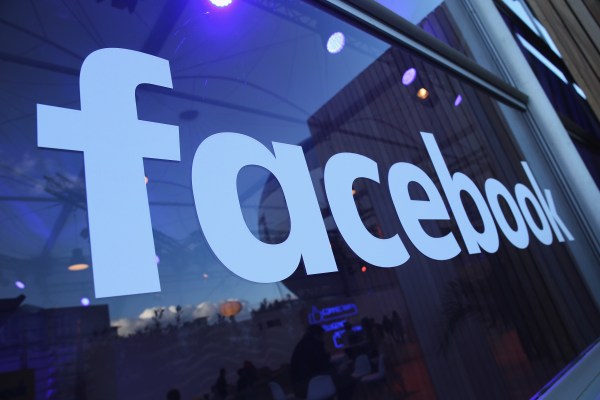[ad_1]
Facebook has entered into a multi-year agreement to compensate French publishers for sharing their content on its platforms, he announced today.
The social media giant said the license agreement with the Alliance of National and Regional Newspapers “means that Facebook users will be able to continue to freely download and share news within their communities, while also ensuring the copyright protection of our publishing partners. “
Facebook declined to say how much it is paying for the agreement with the General Information Press Alliance (APIG) in France when we asked. But in a blog post trumpeting the deal, he wrote: “After constructive negotiations, this solution will strengthen our investment in the information industry and enhance the information experience for people and publishers on. Facebook.”
The blog post also states that it will invest “at least” $ 1 billion to support media companies over the next three years – but this is a collective prize pool, not just one for the media. France. So who gets what exactly – and where – remains unclear.
Facebook’s largesse in France is not voluntary: the development concerns EU law which was updated to reform digital copyright rules in 2019 to, among other adjustments, extend neighboring rights to snippets of content from publishers in response to criticism from the newspaper industry that adtech giants were profiting from the quality journalism shared by users of their platforms.
France has been at the forefront of translating the EU’s digital copyright reform into national law, but the changed rules are expected to apply to the whole bloc – the giants of the advertising technology like Facebook will therefore have to enter into several agreements to cover the region. Hence this pot of “at least” $ 1 billion.
Google, meanwhile, already reached an agreement with newspaper publishers in France earlier this year.
However, it quickly came under scrutiny by the country’s competition watchdog over how it approached negotiations with publishers. And this summer, the French authority fined Google $ 592 million for violating a process-related order, accusing it of failing to conduct negotiations in good faith and withholding relevant key information. to determine payments.
France’s competition watchdog was also unhappy that Google had attempted to unilaterally impose conditions on publishers, seeking to push them into agreeing to a global news licensing product it designed, called Publisher Curated News, rather than negotiating local conditions, as required by law.
It is not clear whether the authority’s aggressive application against Google has focused minds on Facebook to strike its own deal with French publishers – not least because the amount it pays for content sharing is not clear. not disclosed – but it probably helped.
The French publishing alliance whose members have agreed to terms with Facebook only said the deal would generate “significant funding,” particularly highlighting the increased revenue it would generate for its smaller members.
“This first step in the concrete implementation of neighboring rights shows that solidarity between publishers is essential to effectively defend their interests”, added Pierre Louette, president of the Alliance and CEO of the Les Echos – Le Parisien Group, in a statement.
Also today, Facebook announced that it will launch a French-language news service in January – which it says will offer users “a dedicated space to access content from trusted and reputable news sources” – stepping up its efforts to showcase professional journalism on its platform as a direct result of legislation requiring it to pay for reuse.
This is a far cry from recent events in Australia – where, earlier this year, lawmakers debated similar legislation related to payment for the aggregation and reuse of news content. And during this legislative push, Facebook temporarily shut down information sharing in the county – along with a whole bunch of other bona fide news sources, seemingly as some sort of “evil chaotic” lobbying strategy to try to ‘scaring lawmakers across the country into dropping the idea. .
What really happened, however, was that Australian lawmakers went ahead and passed a news trading code that applied to Facebook and Google in February.
And deals to pay for content reuse in Australia have been duly made between the couple and a number of publishers and broadcasters below.
Thus, the writing appears to be on the wall for adtech platforms to get a free pass to monetize the attention generated by professional news content that passes on their platforms. As other countries outside the EU see Big Tech’s wallet unlocked to pay for news reuse through changes in the law that they will surely follow.
But as regular payments flow from tech giants to newsrooms – last year Google also announced a $ 1 billion kitty to pay for news licenses – Democracy Watchers may have reasons to be concerned that the dominant Internet platforms are becoming a source of income for a “free press”.
Google and Facebook certainly do not waste time exploiting the advertising opportunity – suddenly claiming that their platforms can now be considered sources of “reliable and reliable information”. (Instead of, you know, the outrageous click bait and misinformation they’ve so often been found amplifying for a profit.)
“Our partnership with Alliance proves the benefits of a strong collaboration,†the Facebook blog post gushes. “Likewise, we have been encouraged by the progress made elsewhere in Europe, and look forward to continuing the constructive conversations. “
Developments reported on this front are the recent launch of Facebook News in Germany, with new partners including Axel Springer, Frankfurter Allgemeine Zeitung, Handelsblatt and Tagesspiegel.
In the UK, it also notes that it has made deals with a number of publishers, including Conde Nast, The Economist, Guardian Media Group and Hearst.
[ad_2]

